With the ever-unintended – almost severe – sternness in his gaze, Greg, ever so stoically, turned to me and announced, “Lauren, you’re staying as a senior hand.” His eyes began to twinkle and, as they softened, his face thawed into a collection of charmingly gleeful smile lines.
Meet Greg Noah – Wellsite Geologist, former lecturer at Memorial University (MUN) in St. John’s, Newfoundland, and my own, personal offshore gender diversity champion and mentor. Greg graduated with a Bachelor of Science (Honours) in 1979, and a Masters in Business Administration in 1988. I have had the pleasure to work with Greg over the majority of the past (almost) three years, in the North Atlantic Ocean’s waters off the coast of Newfoundland, Canada. Our first encounter was during my second-ever hitch. (Hitch: An offshore oil and gas employee’s work period – typically, a 3- or 4-week time frame.) In an earlier post, I detailed the first few months of my new life working offshore. I was, admittedly, in a constant state of ‘sensory overload’ for the first several months.
During my fourth-ever week of work on board the semi-submersible rig, I met Mr. Greg Noah – the client wellsite geologist for a major oil company.
That very same week, my steady state of being ‘high-octane’ – learning independent and SIMOPS (simultaneous operations) systems, the duties of my job description, bearings and various equipment on the rig, terminology (including the associated acronym for each and every movement, operation and piece of equipment on board) – kicked into over-drive. Greg decided that he would champion my skill set and work ethic, by means of my first promotion. Five weeks into rig life and I was now a senior geological mudlogging hand.
“Women just make it better!”
Swiftly following that event and over the many months thereafter, our conversations evolved from ‘strictly business’ to regaling each other on the experiences of our personal lives, inevitably, finding common interests – including a common (at times, somewhat darkened) sense of humour! One such conversation we had revolved around the topic of women working in the offshore oil and gas sector. I vividly remember Greg stating, “Women just make [a crew/the working environment] better!”
It was a vivid memory because the positivity and bolstering nature of the comment directly opposed my negative, inner anxiety of working in such an extreme and intimidatingly male-dominated industry. I wouldn’t be able to pinpoint where those negative feelings stemmed from, even to this day. As an extroverted, strong and independent woman, it’s not in my nature to kowtow to challenges – especially, where outdated socioeconomic views of gender and the workplace are concerned.
Many of our contributors share various experiences that share a common thread. They have all had negative experiences concerning slights to their work ethic, skill sets, knowledge, professionalism, career choices, and even their mere presence (based on their gender) on location in predominantly male arenas.
Turning on the lights.
I felt it was high time to turn the lights on: There are plenty of the opposite sex, outside of and within the industry, who will be our gender diversity champions, all day long. With the help of Greg’s candid opinions on the matter, we dissected and discussed his sentiments about his original comment he had made to me, concerning our female counterparts in the field.
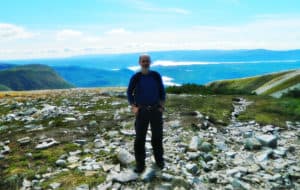
Greg, let’s start by rewinding and giving you a summary of your geological career thus far.
“After a couple of years in mineral exploration, following graduation, I started offshore as a mudlogger with a major well services company in 1982. Within a couple of years, I was working as a wellsite geologist, both in Western Canada and offshore, on the [Canadian] East Coast. The dramatic drop in the price oil in early 1986, forced me to re-evaluate my career options. I went back to university for an MBA and followed that by 8 years teaching in the Business Faculty at MUN. In 1997, I took a 6-month leave of absence to get back into the petroleum industry (Western Canada for one year, followed by the Hibernia Platform) and haven’t looked back.”
Photos: Left; Western Canada Resource Plays. Right; Hibernia Platform, Newfoundland.
Greg, would you touch on any differences in the number of women in field operations from when you started your career to now?
“Zapata Ugland (since renamed, J.W. Mclean) was the first rig I on worked on, starting in January of 1982. There were no women on board. Four-man rooms, communal bathrooms, no televisions, taped movies and (surprisingly, by today’s standards) pornographic movies played in the communal lounge area, on the regular. Not a great introduction to the industry! My next two rigs (SDS Vinland & Sedco 710) did have a couple of women on them but not in non-traditional roles rather a medic and an administrative personnel. Their presence, even in those roles, added a degree of decorum that was not present in an all-male environment.”
Non-traditional roles (as defined by the Women’s Bureau of the U.S. Department of Labour): A nontraditional occupation for women is one in which women comprise 25 percent or less of total employment.
“HMDC (Hibernia Management and Development Company) had aspirations of having a significant number of females working in non-traditional roles on the platform The reality was that the number of females in non-traditional roles was always very low – in the low single digits. While that number has improved slightly (about 15 today, not including those working in the accommodations), there is still a lot of room for improvement.
The ratio of women to men on the West Aquarius (WAQ), Newfoundland, (again not including accommodations) was significantly higher [compared to the ratio of women to men on the Hibernia Platform]. I can remember about 10 women working in field operations, out on deck.”
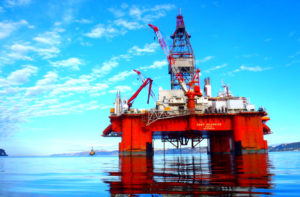
West Aquarius in Bay Bulls, NL. Photo Credit.
Two part question coming your way, Greg: Firstly, please describe the working relationship that you have with mudloggers, as their supervisor. Secondly, in your opinion, are there any differences (work ethic, ambition, demeanor, or otherwise) that can be delineated, based on gender?
“My personal experience as a Geoscience Supervisor, who relied heavily on mudloggers’ abilities to perform their duties, was that all females did at least as good a job as their male counterparts, with a few that were outstanding. The job duties of a mudlogging geologist are extensive: Catching regular samples on time, knowing when to catch spot samples without direction, describing samples with professional accuracy and attention to detail, monitor for and analyze any cavings, taking photos of all samples, work on and often complete client-deliverable logs and EOWs (end of well reports) – all while monitoring the drilling operations for any well control events and remaining in constant contact with the drill floor personnel and clients, at any given point.
It was those employees who really made my job both more pleasurable and honestly, much easier. These employees (like the most competent male mudloggers) progressed quickly. I found that women working as mudloggers were typically eager to learn, had only to be explained a concept or duty once and would readily check with me if unsure of something. These women were very productive. Furthermore, organizations have found that their most productive employees are two and three times as productive, as the average worker.
It was also my perception that having women work alongside men in a male-dominated industry, especially in a relatively isolated environment for a 3-week period, also brought subtle changes in both the attitudes and behaviors of many of the male crew. This tangible change, had a positive effect on the whole rig. Having women working in labs, on the deck, rig floor, in vendors units, in the break rooms and galley normalized the work environment as compared to a strictly male-oriented workplace. We still have a long way to go before the ratio of men and women approaches equality, but the consequences of having more women in this workplace will only be positive and beneficial.”

What can industry do to encourage those females into the sector and, more importantly, retain those women in the workforce?
“I don’t think there are any real barriers to any roles, only preconceived ideas about particular roles (historically) more suited to women. Women, just like men, are all different – they have their own individual skills, abilities and interests. An intelligent person can still start as a roustabout and work their way up to Rig Manager or higher. However, post-secondary education will always give that individual a leg up on the competition and will assist in their career progression – and is often a hiring requirement for many companies, such as well services companies and any of the operators.”
So, Greg, how do you propose we bump up the numbers of women in non-traditional roles – or, at least the notion that those roles are out there for women – and whose shoulders does this fall on to undertake?
“There are very few examples of women working in offshore positions, that are available for young ladies/girls to be role models for. I think it’s the industry that needs to start at the junior high school level with ‘show and tells’, school visits by those female offshore professionals and highlighting successful women in the offshore world. I would bet that the vast majority of girls in school do not even consider that there could be well-paying, satisfying careers for them working on an oil rig. Having female company representatives and those that work in the field, visiting schools outlining career opportunities to junior high school students, would plant the ‘this-could-be-for-me seed’ in some girls’ minds. Industry organizations (NOIA – National Ocean Industries Association (US) , CAPP – Canadian Association of Petroleum Producers) and even the CNLOPB (Canada-Newfoundland and Labrador Offshore Petroleum Board) can initiate, or at least be on board, with this change.
Since individual well service companies and major oil companies will be the ultimate beneficiaries of more women as employees (they will be able to tap into a portion, up to half, of the population that has been largely by-passed or overlooked) they need to be actively involved.”
Given your extensive insight into the oil and gas sector, do you have any suggestions on how we may retain those women in the industry, as a long-term goal, once they’ve been hired?
“Keeping employees is a different challenge. Organizations need clearly defined career paths that are administered fairly and equitably. In this industry there are plenty of examples of dysfunctional, unprofessional managers can result in dissatisfaction and ultimately, both men and women in those situations end up looking for alternative employment.”
I’m sure, over the years, you’ve seen and heard it all! Is there any advice you’d give upper management of those companies?
“My advice to field managers would be to realize that a large part of your responsibility is to nurture the career paths of your staff – this will ultimately benefit the organization. My advice to the business unit managers of these organizations: If they are not nurturing the careers of their staff, they need to take a closer look at their actions and policies, as instead, they may be exploiting them.
Having women working in traditionally, male-dominated roles in the offshore is a win-win situation. Everyone benefits; oil companies, service companies, drilling contractors and all of their staff. Organizations that don’t realize this will be left behind. Those that do embrace gender-neutral offshore roles, will tap into a vast new talent pool and excel.
In summary, I imagine it can be intimidating for many women to even contemplate working on an offshore rig where they will, most likely, be out-numbered, 10 to 1. Regardless of that fact (and a fact it is), I think they will find that that this offshore environment can be both rewarding and socially accepting. For those women who plan to have children, an offshore role early in their career (prior to children), can provide the field experience necessary to move into a management role onshore. In the end, this offshore life is what you make it. Whether female or male, a positive frame of mind is a necessity.”

Greg, our sentiments of thanks for championing this topic of discussion with our Editor, Lauren, are echoed throughout our entire readership.
Do you have any comments on Greg’s article, or any stories of your own? Reach out at [email protected] and find us on Facebook, Twitter, LinkedIn and Instagram. See you there!



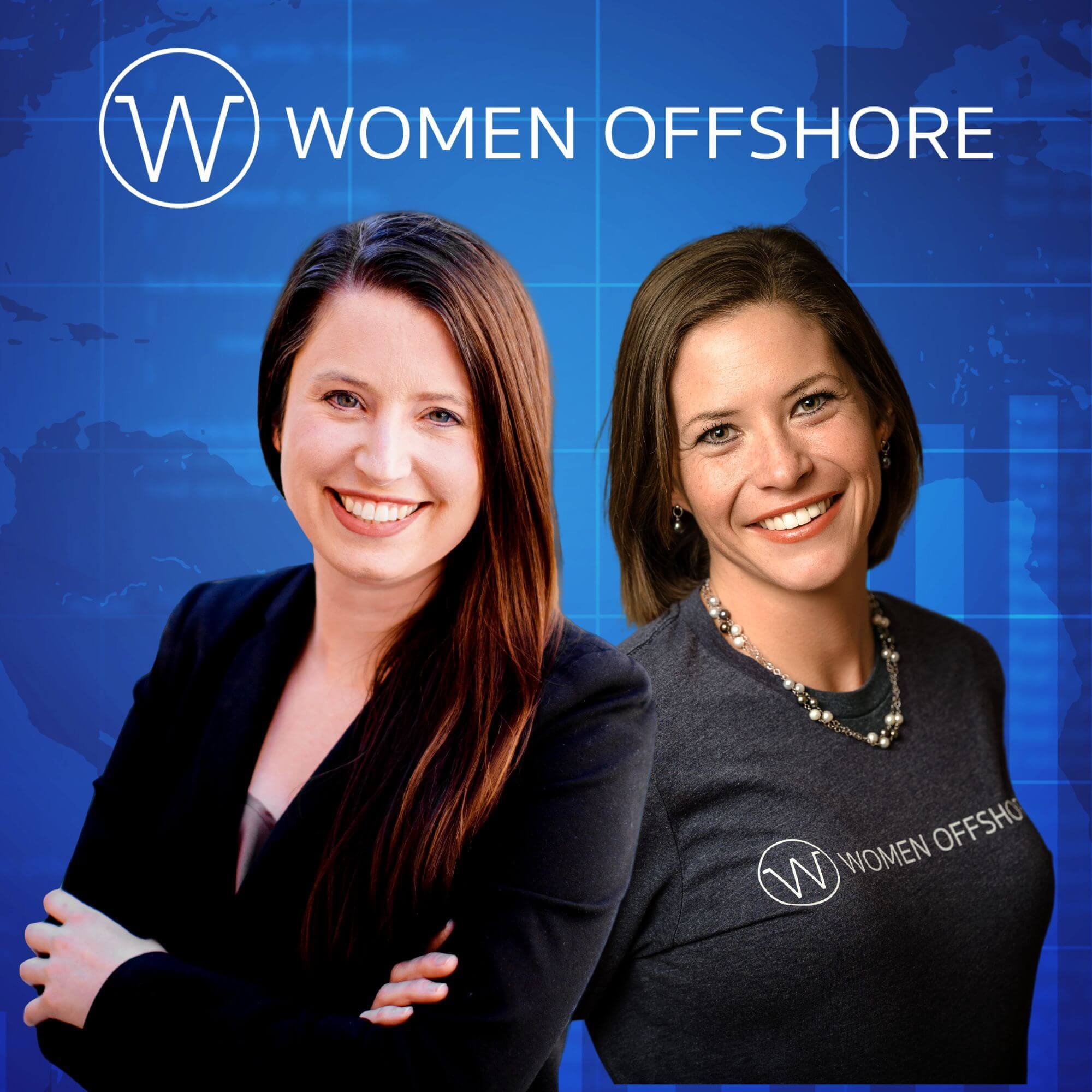
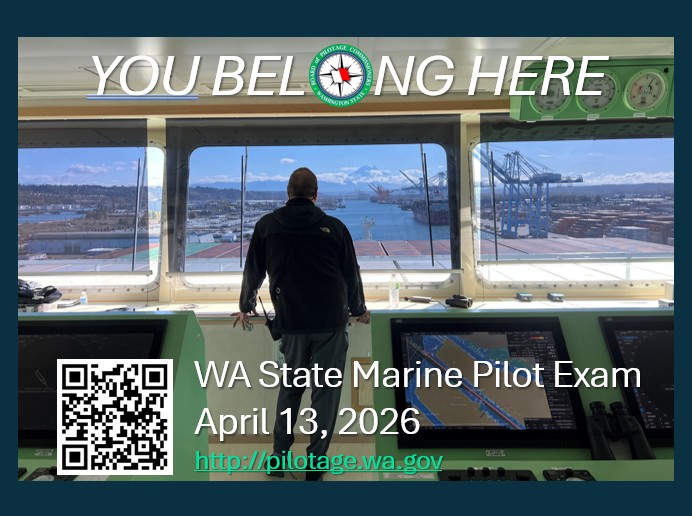

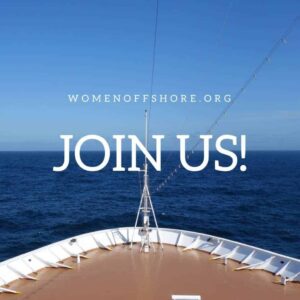
Another great article Lauren. Keep the conversation going.
Yes! Thanks for stopping by Jody!